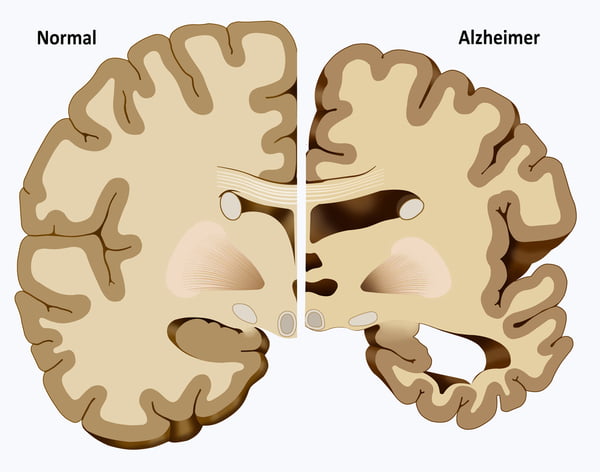In addition to medications, other care and management strategies are applied to treat Alzheimer’s disease and to help improve life of patients, increase their confidence and make their daily activities easy and also to reduce the burden of caregivers and extend or hold the time of disease progression as long as possible. Management of disease helps to cure many of the disease-related conditions and reduces chances of complications.
Initial management strategies
Medical care is usually provided by primary care physician. The goal of the treatment is to increase and maintain quality of life, daily activities, cognitive abilities, mood and behaviour and foster safe environment for patients.
Strategies to achieve these goals:
- Regular health checkups and maintenance visit
- Forming a therapeutic alliance with caregivers
- Providing education about disease prognosis and progression to family and caregivers
- Explains how co-existing management is affected by Alzheimer’s conditions
- Encourage families and caregivers to increase and maintain physical activities and social engagement of Alzheimer’s patients
- Awareness about safety issues for patients with Alzheimer’s disease such as those related to operating tools and driving car. As the disease progresses, these abilities may be affected in patients with Alzheimer’s.
- Education and awareness of families and patients about non-medical issues that should need to be addressed.
Advanced Management Strategies
The decision about medication changes as the disease progresses. Various decision changes that occur over the disease progression are-
- For mild Alzheimer’s patients having few medical issues, most of the care plans seem similar to that of patients without dementia.
- For advanced dementia and severely mild Alzheimer’s, the strategies and care plans focus on comfort and palliation of patient. Patients are not able to recognize their closed ones i.e. family and friends at this stage.
- During the middle of the disease progression, most of the management and treatment options come in. At this stage, patient has difficulty in understanding the purpose of treatment and complying with the treatment plan.
During the disease transitional time, a physician should work with patients and their families to help them understand following things-
- Prepare for the future changes as disease progresses and also to understand the impact of progression on the disease treatment for different conditions of Alzheimer’s disease and dementia.
- Encourage families to communicate and discuss about the indication of transition time as early as possible.
- Clarify and define important goals of treatment such as improving and maintaining quality of life, reducing burden of family and caregivers etc. It is also important to suggest the caregivers to reassure Alzheimer’s patients to provide best care for them.
Care and Prevention of Alzheimer’s
Supportive care and prevention of Alzheimer’s
Supportive care involves strengthening the routine habits and minimizing the memory based tasks. This will make the life of patient much easier. There are various ways by which one can care patient or prevent the disease conditions from worsening.
The following supportive steps can be taken to improve functional abilities and sense of well-being-
- Keeping valuable things like wallet, cell phones, car and house keys at same place to avoid misplacing of the things.
- Carry cell phones with location identifier so you can call in case you are lost and also people can trace your location and find you.
- Feed important contact numbers in your cell phones.
- Use of calendar or whiteboard to track schedules and fix regular appointment with doctor at the same time if possible.
- Switch to automatic payment mode so your finances can be maintained and managed.
- Remove excess furniture, mirrors, rugs, and ensure that shoes and slippers should be comfortable.
Routine Exercise
Regular exercise helps to prevent symptoms to a great extent for patients with Alzheimer’s in many ways-
- Daily activities like walking helps in maintaining joint and muscle health
- It also improves mood and heart health
- Exercise helps in promoting good sleep and prevent constipation.
Note– Patients with Alzheimer’s who have difficulty in walking can use stationary bikes and participate in chair exercises. Also, tracking bracelet should be worn by people with Alzheimer’s if they are walking or doing exercise alone without someone’s company.
Balanced and Nutritional Diet
Due to dementia and memory loss, people with Alzheimer’s often forget to eat and lose interest in eating food and face difficulty in swallowing too. They also forget to drink water and face problems like dehydration and constipation. These things lead to nutritional deficiency in the body of patients which may also worsen the disease condition.
So, a proper balanced nutritional diet should be given to fulfill nutritional need of the body which can also nourish the brain and helps in controlling disease symptoms over long time from becoming worse.
- High-calorie- High calorie milk shakes and smoothies with protein powder and preferred vegetables can be taken as supplement to fulfill nutritional demands.
- Water, healthy beverages and juices can be taken to fulfill water demand of body and caffeinated drinks should be avoided. The caffeinated drinks increase restlessness and disturb sleep and increases urge to urinate.
Alternative Medicine
Various vitamin supplements, herbal mixtures are widely promoted that may improve cognitive health of Alzheimer’s patients and delay the disease progression. But, currently no evidence is available to prove the effectiveness of these alternative medicines to slow the cognitive decline process.
Various alternative treatments studied recently:-
- Omega-3 fatty acids- This is majorly found in fishes and helps in preventing cognitive ability decline.
- Curcumin- It has anti-inflammatory and anti-oxidant properties. It comes from turmeric and affects the chemical process in brain but studies does not show any evidence.
- Ginkgo- It is a plant extract containing several substances but NIH studies found no evidence to show positive effects in delaying Alzheimer’s symptoms so far.
- Vitamin E- Although taking vitamin E doesn’t show any effect on controlling the Alzheimer’s disease, but taking 2,000 international units daily may help in delaying the disease progression. Research results are mixed.
Supplement may interfere with the medications taken for the disease. Therefore, a detailed discussion about safety and side effects is necessary before taking the supplement with Alzheimer’s medication to improve cognitive functions.
Advance Planning and Care
It is seen that after diagnosis, people with dementia and Alzheimer’s often live for many years but as this disease is progressive one, future planning helps reassure family and patient too. It is about discussing and recording future wishes and plans. At early stages of disease, one can make a plan by discussing with family and doctors for the time when he/she is not able to think and make plans. This involves use of-
- Preferable priority for care
- Decision to refuse treatment
- Advance statement
- Lifelong power of attorney
Palliative Care
As Alzheimer’s is a lifelong and life limiting condition, it affects multiple body functions at the severe stage or later stage of the disease progression. Palliative care support the patients with incurable illness so that they can live comfortably as much as possible till death. This care is provided at home, at hospital or a hospice. For patients ending their life, the care team fulfill all needs of patients and make them feel comfortable.
For further care and support, it is helpful to get in touch with a local or an international Alzheimer’s groups and society.
Therapies to Prevent Alzheimer’s and Enhance Quality of Life
Besides medicational treatment, there are many non-medication based therapies which can help improve quality of life of Alzheimer’s patients and delay disease progression. The therapies are-
Drug therapy
The drugs to cure and treat Alzheimer’s completely are not available till date but there are many other medications which may help in treating the symptoms and complications related to the disease. These medicines help in improving quality of life and disease progression. There are four Cholinesterase inhibitor approved by U.S Food and Drug Administration (FDA) to treat symptoms of the disease-
- Donepezil (brand name Aricept)
- Alantamine (Reminyl)
- Rivastigmine (Exelon)
- Tacrine (Cognex).
Another drug Mematine (Namenda) is an NMDA receptor agonist which is used alone or in combination with cholinesterase inhibitor receptor to treat Alzheimer’s disease symptoms.
Experimental Therapies
Scientists and researchers proposed various experimental therapies for Alzheimer’s. These therapies include- Estrogen therapy, Excess tau protein phosphorylation reversal therapy, Vitamin E therapy, free radicle scavenger therapy. The studied results are however mostly disappointing for them.
Numerous anti-amyloid therapies have been studied in the past 10 years to reduce amyloid fragments in the brain. These studies are as follows-
- Amyloid species vaccination
- Monoclonal anti-amyloid antibody administration
- Intravenous administration of immunoglobulin containing amyloid-binding antibodies
- Administration of selective amyloid lowering agents
- Use of chelating agents to prevent amyloid polymerization
- Preventing generation of A-beta amyloid fragment by beta-secretin
- Removal of amyloid by brain shutting.
No phase III study of anti-amyloid therapies shows any result and satisfactory efficacy
Disease-modifying Therapy
This therapy delays or slows the onset of disease progression. As changes in the brain occur very early before the disease signs and symptoms are noticed, researchers say that starting this therapy at a presymptomatic stage is helpful in disease treatment and controlling the symptoms to a great extent.
Although, phase III trials for numerous possible disease-modifying therapies have been completed but they did not show any clear effectiveness and therefore couldn’t get an approval from the FDA.







